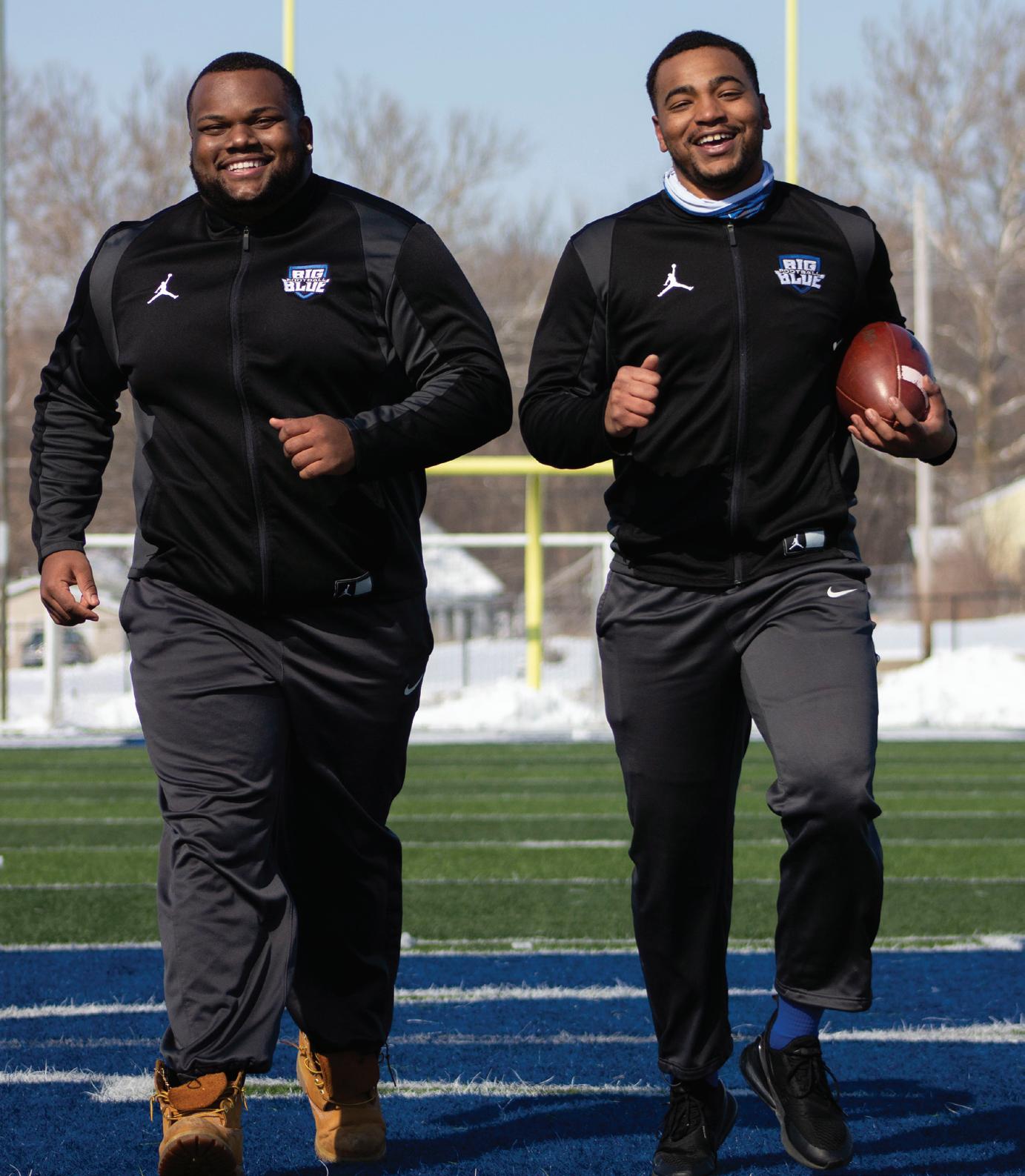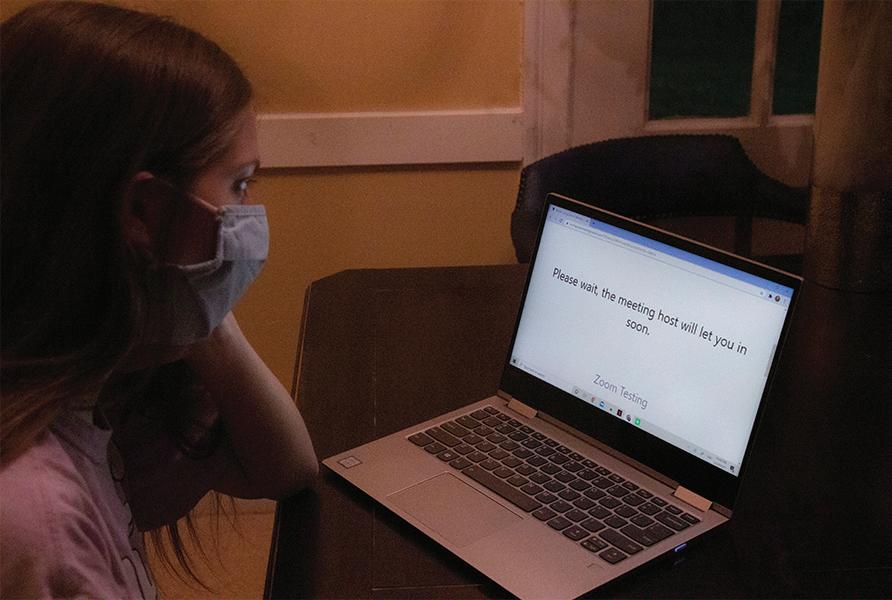
3 minute read
Jordan Diver
Sauvignon Hayes
Offensive Lineman
Advertisement
By Jordan Diver

Patrick Cooper
Wide Receiver
Protests in sports are nothing new. Going back all the way to the Nika riots, which began on Jan. 13, 532 A.D., athletes have used their platform to elicit change. Although protests in sports have gone on for centuries, many modern-day athletes who raise their voices face backlash.
In 2016, football player Colin Kaepernick took a lot of heat when he kneeled during the playing of the national anthem to protest racial injustice. Kaepernick continues to be blackballed by the NFL for his protest. Despite this, his actions inspired many.
“He understood what the risk was,” Millikin senior Patrick Cooper says. “He might lose out on a lot of money, or never be able to play the game—which in my opinion is very respectable because that’s what you’ve been working for your whole life and you dream about it as a little kid. To be willing to give it up because you feel like something isn’t right in the world . . . I feel like everyone can learn from that.”
Cooper plays on Millikin’s football team as a wide receiver. He is from Lockport, Illinois. Millikin senior Sauvignon Hayes also plays on Millikin’s football team, as an offensive lineman. He is from McDonough, Georgia. Both men are inspired by Kaepernick and athletes like him, but they have different ways of continuing his legacy.
“I love it when athletes kneel because many people look up to them—to strive to be them,” Hayes says. “So, when we see that even with the publicity and backlash that they are still willing to have a voice, it is so inspirational.”
As the Black Lives Matter movement surged last summer, many protesters, including Cooper and Hayes, took to the streets to demand change.
“I attended a march back at home before they tore down the Patrick Henry statue,” Hayes says. “I don’t kneel during [Millikin’s] football games, but I support my teammates who do. I love that we have a voice during our games, especially over racial inequality. So, for them to kneel is great.” Hayes knows that kneeling as a protest is controversial, but he questions why. “Other teams definitely don’t like us when we do it, but why hate us when it’s something as peaceful as kneeling? Kneeling is still a sign of respect; we’re just not standing at full mast as they want us to. It’s more a half mast.”
“I marched back at home and I have marched here,” says Cooper. Over his past four years playing football at Millikin, Cooper has followed in Kaepernick’s footsteps. “During football games and since I’ve been here, I’ve always taken a knee. There are probably about 10 to 15 of us every year who take a knee. But no matter where Millikin plays, criticism follows.”
“You go off to Wesleyan or Wheaton and we’ve taken a knee, you will hear all the different remarks from the people yelling at you from the stands,” says Cooper. “The schools are a little more privileged or living more privileged. The players on the team probably won’t have to experience so much social injustice. You can hear those fans in the crowd; they will say something really out-of-pocket, but I don’t feel like they understand completely. It’s a little discouraging, but at the same time, you know what you’re doing it for.”
Nevertheless, change doesn’t stop at the football field.
Cooper believes, “It’s going to take time for things to change. You just have to be persistent and patient. If you lose out on one of those things, if you stop trying to fight the fight and you think something is going to happen overnight, then you’re setting yourself up for failure. It’s been so many years. The steps we have taken have been slow, but progress has been made. You just have to look at it from that standpoint.” Cooper adds, “We can all do more. Everybody can do more.”










